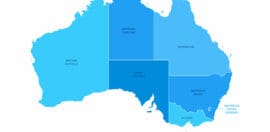Australia's billionaires thrive while ordinary people 'struggle to scrape by'

21 January 2020 at 3:33 pm
Oxfam says Australia has a broken economic system that concentrates wealth in the hands of the rich and powerful
The wealth of Australian billionaires continues to grow, with new analysis showing the nation’s richest 1 per cent now have more than double the wealth of Australia’s entire bottom 50 per cent.
The latest inequality report from Oxfam found Australia’s top 1 per cent – 250,000 people – were worth nearly $2.3 trillion, which is equal to 22.2 per cent of the nation’s wealth.
Oxfam Australia chief executive Lyn Morgain said although there was a slight decrease in the number of billionaires in Australia to 36 (from 43 last year), the number has more than tripled over the past decade and their wealth was still increasing.
“The wealth of Australian billionaires, who are mostly men, grew by an average of USD $460 million from 2018 to 2019,” Morgain said.
“This concentration of wealth in the hands of the super-rich is occurring while the share of wealth of the bottom half of our community has decreased over the last decade and workers’ wages continue to stagnate in Australia.”
Looking globally, the report said the wealthiest 1 per cent of people in the world have more than double the wealth of just under seven billion people.
Morgain said this gap can’t be closed without “deliberate policies aimed at tackling inequality, and too few governments are committed to implementing these – ours included”.
She also called on the federal government to ensure that multinational corporations are paying their fair share of tax, by cracking down on corporate tax avoidance.
“Australia needs to introduce public country-by-country reporting of tax affairs for large multinationals as well as a public register of beneficial ownership of companies and trusts,” she said.
“Without this transparency, the government is potentially losing out on billions of dollars of revenue every year.”
Morgain added that this was especially important in times of natural disasters, like with the ongoing bushfire crisis.
She noted that the Australian Tax Office estimated in 2016-17, large companies avoided paying $2 billion in taxes, equal to the entire National Bushfire Recovery Fund.
“It’s time to tackle inequality and climate change together,” she said.
“The only people who benefit from the status quo of economic inequality and weak action to cut fossil fuel emissions are a select group of companies and the super-rich who run them… [this is] preventing meaningful action to tackle inequality, cut emissions and avert the worst of the climate crisis.”








Good summary, just one suggestion. Could you reference things for those of us who want to follow up? I can easily enough track down “The latest inequality report from Oxfam” but a hyperlink would be handy and a reference adds a bit of academic rigour to your work.
“It’s time to tackle inequality and climate change together”. We said Lyn. Morgain